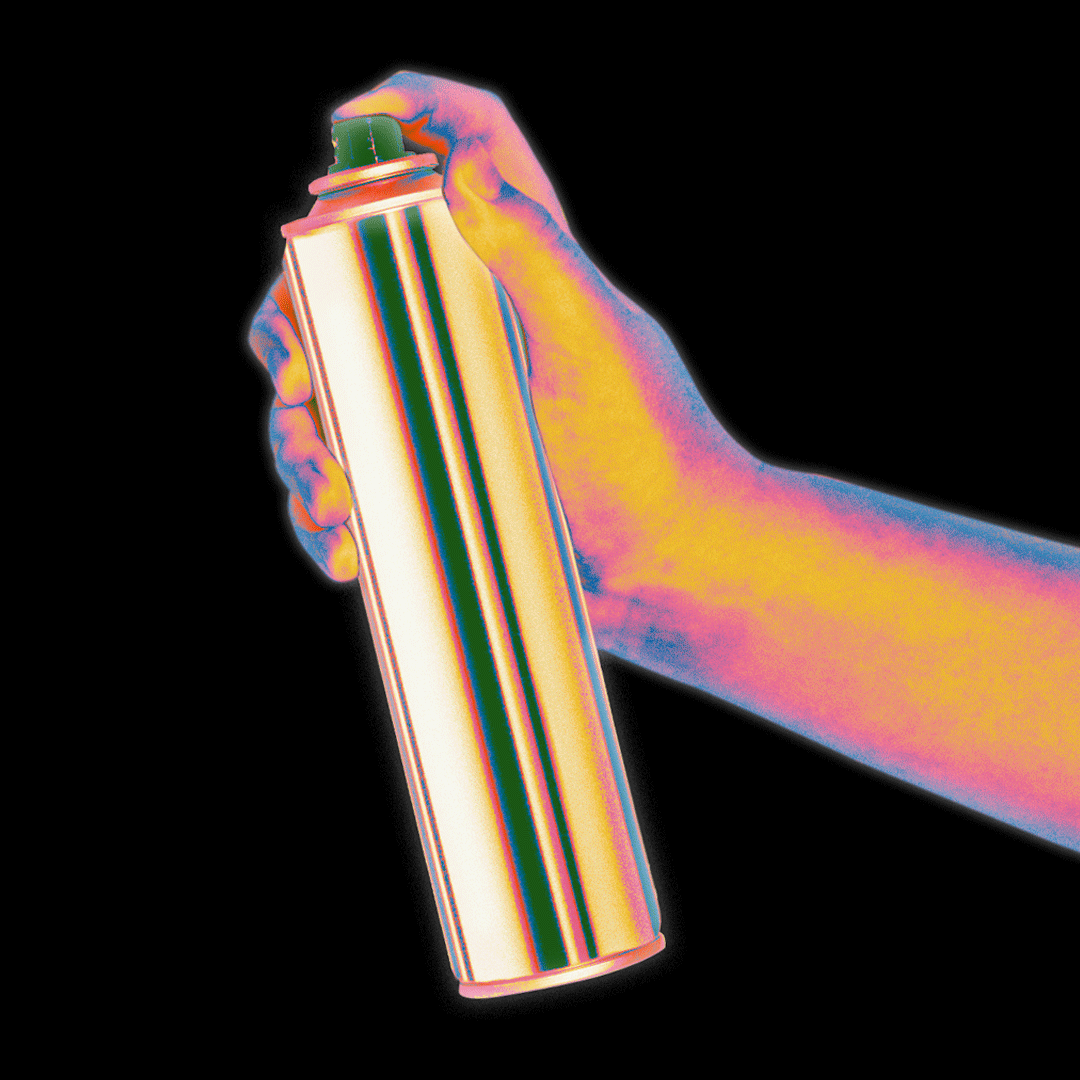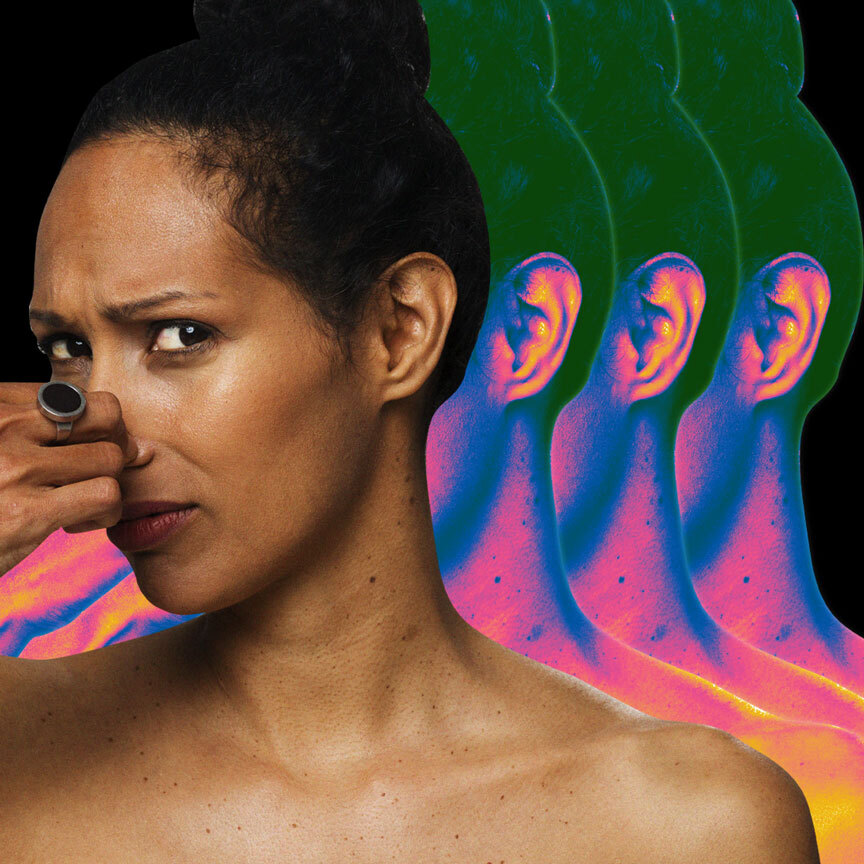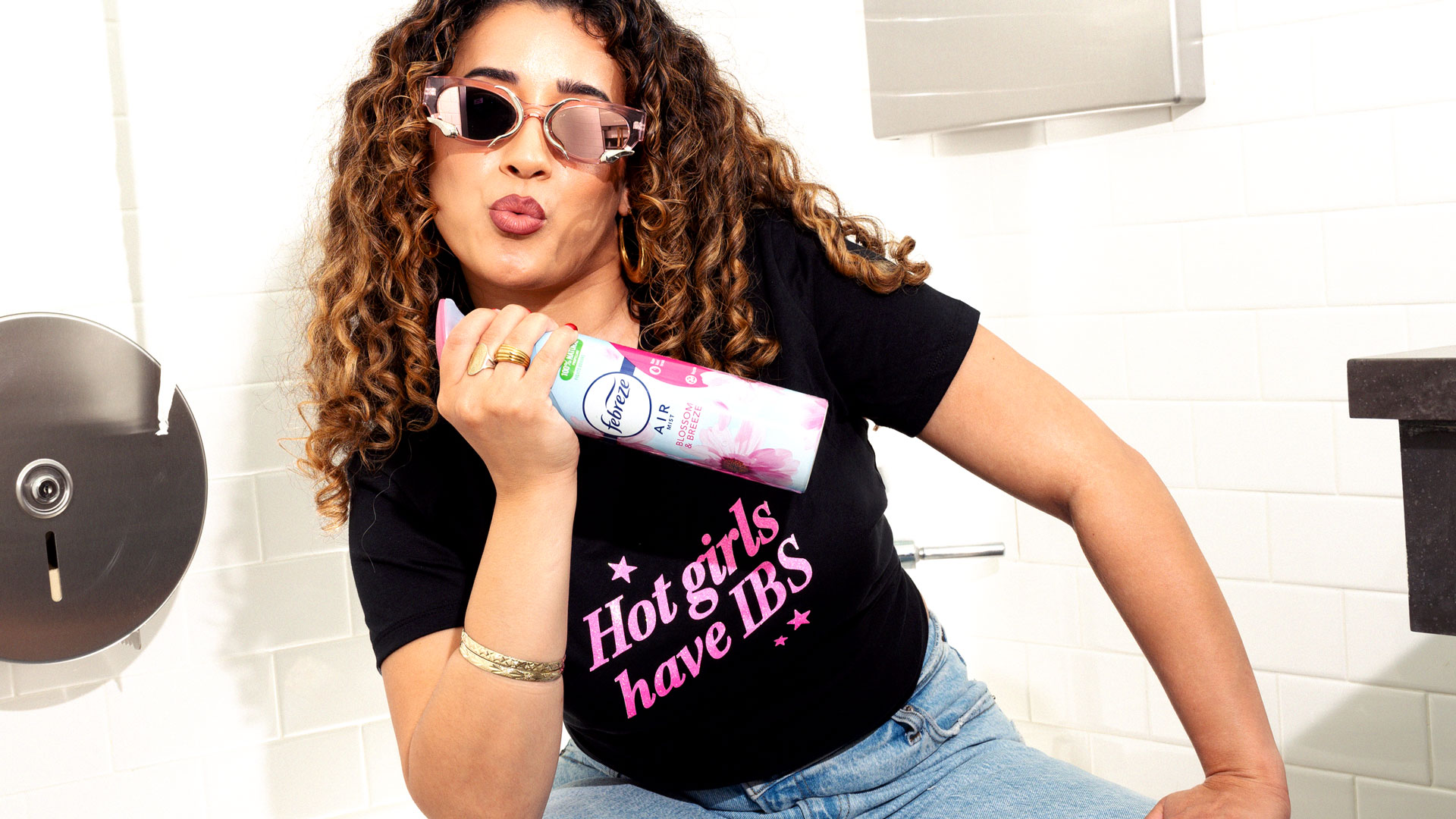For thousands of years, women have been told to never mention their bodily functions. Sweating? Pat those pits dry ASAP, put on deodorant that may or may not give you cancer, and continue about life pretending you are immune to perspiration.
Periods? Shut up and take this brick of bleached cotton and a few Tylenols. Oh, and make sure you have a sweater handy to wrap around your waist in case of leaks. We have to keep the illusion that people with uteruses only exist in frilly tampon commercials and that menstrual blood is actually the color of blue Gatorade.
As for pooping? Ladies, don’t even consider uttering the word “poop” unless you want to feel an insufferable amount of embarrassment and shame… well, that is until recently anyway.
Yes, as crazy as it sounds, pooping and Irritable Bowel Syndrome (aka IBS) have been having a real moment. Thanks to a sort of digital rebrand, IBS has become a trending topic amongst women with tummy troubles who dare to admit that the girls actually do poop and are hot for doing so.
For those with happy lil’ guts, let me quickly fill you in on IBS. According to everyone’s go-to self-diagnosis tool, MayoClinic, “Irritable bowel syndrome (IBS) is a common disorder that affects the stomach and intestines, also called the gastrointestinal tract. Symptoms include cramping, abdominal pain, bloating, gas, and diarrhea or constipation, or both.”
For me, IBS typically looks like canceling plans last minute because a bout of diarrhea, being anxious about canceling said plans, then having more diarrhea because I am anxious, bloating to the point that I rarely wear pants without a drawstring waist, and occasional gas that would have you wondering if I recently competed in a chili dog eating contest at the State Fair.
Women like myself have found that they are not alone in this crappy situation. In late 2021, gut wellness snack brand BelliWelli, plastered the slogan (which has since been trademarked by the brand) on massive pink billboards across LA, Times Square, and Portland. The punchy phrase soon went viral on social media, helping rebrand the shame women long felt about their tummy troubles.
Pretty soon the slogan “Hot Girls Have IBS” grew from a viral marketing moment to a thriving online community where millions of women could be completely honest about their IBS without stigma. The IBS hashtag on TikTok has over two billion (yes, billion with a “B”) views, with the overwhelming majority of videos coming from ladies who want to share their personal stories, advice, or relatable (and very amusing) experiences on navigating through daily life with IBS. What has long been a taboo topic (because, you know, girls don’t poop or whatever) is now being openly discussed on our FYPs, leading to raised awareness, education, and a much needed laugh during our bathroom scrolls.
Beyond the trendy saying and hashtags, “Hot Girls Have IBS” has brought together babes with bowel issues who may have otherwise felt alone in their struggles. Work life, social life, sex life, and mental health are EXTREMELY hard to navigate when flare ups can be triggered at a moment’s notice. And trying to explain to your friends, partner, or boss, “Hey, sorry, there is a 7.2 magnitude earthquake going on in my stomach and if I don’t get to a toilet in the next 30 seconds we are going to have some serious problems,” is not the easiest convo to navigate, especially when society as a large has deemed women as “unladylike” for advocating on behalf of their gut health. “This disorder can be socially isolating, where you may not be able to go out due to the pain, bloating, or bowel movements. You are limited in what you may be able to eat/drink around friends which can be very difficult to explain, and again can be socially isolating,” explains Gastroenterology Nurse Practitioner and TikTok gut health advocate, Jennifer Fijor, MSN, RN FNP-BC.
Knowing I can open up TikTok or Twitter (ugh, X) and within a few scrolls see women unabashedly talking about their IBS issues and advocating for others to do the same, gives me the same level of comfort as knowing I have Pepto and Imodium stashed in my bag. To all my fellow hot girls, let’s keep widening the bathroom stall door with real, honest conversation about IBS and continue to support one another through the bad tummy days and the good ones too.

Hot Girls Love To Be Educated On IBS
Knowledge is power. Beyond the cheeky slogan, we have to educate ourselves to ensure our health needs are being met. ‘Cause what good is being hot if we can’t be happy and healthy also? Gut guru Jennifer Fijor, was kind enough to lend her expertise so you can be an educated hottie on the potty.
What Should You Do If You Think You Have IBS?
Take it from someone who had a colonoscopy at age 20 — although the convo might be awkward at first, do not be afraid to speak with a doctor about your symptoms and advocate for your health.
“If you think you have IBS, having a frank discussion on why you think you have IBS is definitely worth discussing with your provider,” explains Fijor. “There are other conditions that may want to be ruled out in the process, such as celiac disease, thyroid disease, infectious causes, inflammatory causes, or even potentially cancers. If you present with ‘red flag’ symptoms such as bowel habits have consistently changed over a 2 week period, unintentional weight loss, anemia of unknown causes, or rectal bleeding is present, we really should do a thorough work up to exclude other causes. And if a diagnosis of IBS is confirmed an individualized plan with you and your provider needs to be discussed.”
What Triggers IBS?
There are a lot of factors that can trigger IBS symptoms, to say the least. Fijor mentions stress and anxiety, sleep deprivation, dehydration, lack of exercise, certain medications, and gastrointestinal illness like food poisoning, as well as food and alcohol (more on that below) as potential triggers. “Because there is not one isolated cause, nor triggers, providing treatment/relief for IBS is difficult. It takes time, and sometimes a lot of trial and error,” she explains.
What Foods Should You Avoid If You Have IBS?
All bodies are different, so while my beloved McNuggets might betray my stomach, someone else with IBS may be able to order a 10 piece with no problem. (Jealous of u.)
Fijor makes note that before eliminating foods from your diet, it is best to discuss with a provider or dietician. “By cutting out large groups of foods, you may be unnecessarily robbing your body of the essential nutrients that come along with these foods…An elimination diet with a trained professional is the best way to determine what is best for you, personally to avoid.”
Carbohydrates: Unless you are Regina George, carbs are likely a part of your diet. However, some sugars can be hard for those with IBS to digest, explains Fijor, leading to symptoms like gas, bloating, abdominal pain, diarrhea, nausea, and vomiting.
Fried and processed foods: I know they are oh so delicious, but according to Fijor, heavier, fried and processed foods can bring about IBS symptoms. “Limiting this is not only good for IBS symptoms, but likely other health outcomes overall.”
Caffeine: Coffee poops + IBS are no joke. Caffeine can increase the gastrocolic reflex, a signal from your stomach to the brain, then the brain to the intestines, basically telling your body to move things along, explains Fijor. This reflex is already heightened in those with IBS, so maybe think twice before grabbing that latte at Starbucks while on your next road trip.
Alcohol: You know those people who make drinking wine their entire personality? Couldn’t be me. Like caffeine, alcohol can have a similar effect on the bowels, which can lead to dehydration and further GI issues, says Fijor.
Sugar substitutes: Fijor mentions artificial sweeteners (sorbitol, mannitol, xylitol for example) can also lead to gas, bloating, abdominal cramping, and diarrhea. Definitely not sweet.

What Can You Do To Help Manage IBS Symptoms?
Fijor suggests limiting alcohol, tobacco, and processed foods. Eating a diet that includes a wide array of foods is best, but obvi listen to your body and make sure you are only eating what you can tolerate. So even if that kale salad is considered a “healthy” lunch, it might not be so healthy for you if it leaves you praying to God from the bathroom.
Additionally, drinking plenty of water, getting a good night’s rest, maintaining stress and anxiety, and keeping active are all ways Fijor suggests to help limit your IBS symptoms. For days you are feeling particularly bleh, try getting outside and connecting to nature, even if it is just a quick walk. Fijor also recommends practicing yoga, meditation, and deep breathing.
Most importantly, Fijor says, “Do not give up hope and if you do not feel like you are being listened to, find someone who is willing to take the time to listen and work with you on treatments. There are natural remedies, medications, therapies, apps, and conventional treatment such as acupuncture that may help and shouldn’t be afraid to be explored.”




















































